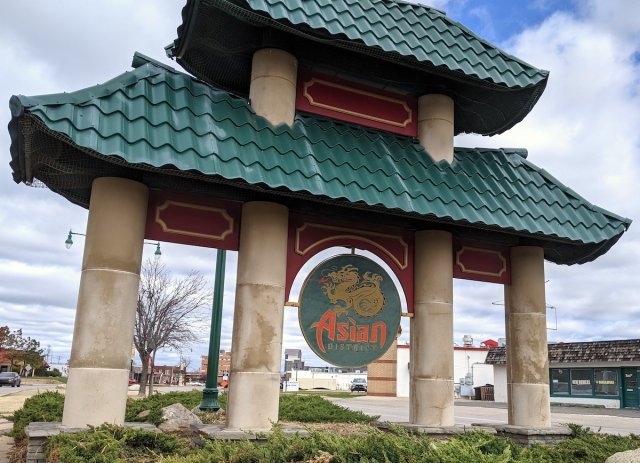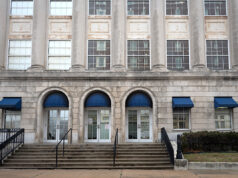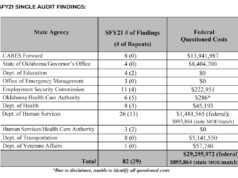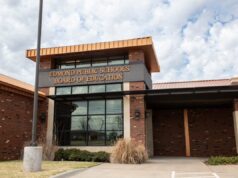
To say that this past week has been a difficult one for Asian American & Pacific Islander (AAPI) communities across the country is, perhaps, an understatement. On March 16, eight people, six of them AAPI women, were shot dead in attacks at day spas in and around Atlanta. Across the country, including in Oklahoma City’s Asian District tonight, vigils are being held to honor those victims.
The Atlanta shooting is the most viscerally upsetting of the many incidents of anti-Asian hatred that have occurred during the pandemic. Stop AAPI Hate, a coalition tracking anti-Asian violence and harassment, recently released a report documenting nearly 3,800 hate incidents that took place in the U.S. during the past year, including several attacks on Asian American seniors. Of course, this number does not account for the many incidents that go unreported.
These statistics are valuable for establishing facts and highlighting trends. Statistics cannot, however, capture the impact these incidents have on the emotions, concerns and thoughts of the affected communities. As the alarming news of hatred and violence has spread, I have been continually anxious for my family, friends and neighbors, worrying about their safety whenever they are in public spaces. The elders in my family, who have lived in Oklahoma since immigrating to the United States from Vietnam in 1983, are scared to go out of their homes alone.
Understand the context of anti-Asian hatred
The pain and suffering of the past year are felt collectively, but they are not new. Our intergenerational trauma can confirm that. My parents remember vividly Cleveland Elementary School in Stockton, California, in 1989, which was the largest school shooting before Columbine. The perpetrator targeted predominantly Cambodian and Vietnamese immigrants because he believed they were taking jobs away from native-born Americans. The victims of that shooting came to the United States with their families as refugees around the same time my family did.
As many public figures and groups release statements regarding the most recent attacks and killings, it’s important to remember that addressing hatred requires more than words. More ought to be expected from our policy leaders and politicians, who occupy positions of privilege and wield power to make changes that affect all of us.
Though the recent deaths in Atlanta have particular significance in the context of anti-Asian violence related to COVID-19, public leaders ought to understand the nuanced, complex and often-overlooked manifestations of racism that affect AAPI communities. The model minority myth, which assumes those of Asian descent are a wealthier, healthier and more educated monolith, covers up the realities of those experiencing poverty, incarcer
And while racism played a significant role in the deaths in Atlanta, we cannot ignore how the victims’ different social identities of gender, labor, class and immigration status created overlapping and interdependent disadvantages. Asian women have experienced sexualized racism through fetishization, objectification and violence throughout history, and they reported experiencing 2.3 times more hate incidents than Asian men this past year.
Surviving in a slow economy, working-class immigrants often work in the service and retail sectors, where required in-person working conditions increase their chances of contracting the virus and of being targeted for harassment and violence.
Lastly, whether or not the victims in Atlanta were sex workers or self-identified under that label, we cannot ignore that the violence they experienced stemmed from hatred toward sex workers. Effective strategies for addressing anti-AAPI sentiments will be those that approach the many different, intersecting forms of hate and bigotry.
Each of us is dependent on the well-being of everyone else
This past year has made me reflect how, nearly four decades ago, my parents and their parents came to the United States in hopes of starting a better life. Like many immigrants before them, they had faced war, famine and poverty and looked to the American Dream as a future for their descendants. Their love, sacrifices and hard work are the greatest gift handed down to me. Yet, the hardships that they and other immigrants have faced did not end when they came here.
For anyone planning to attend the vigil tonight, I urge you to spend time afterward learning how to best center education, advocacy and policy around the AAPI community, and, more broadly, all marginalized people. This pandemic has been a reminder that each of us is dependent on the well-being of everyone else and that we are all in this together.
If we want to create safe, inclusive and compassionate communities to live, play and work in, it is in our individual and collective interest to confront discrimination and division in all its forms.





















